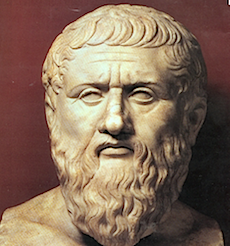Plato: Difference between revisions
Pablo Sender (talk | contribs) No edit summary |
Pablo Sender (talk | contribs) |
||
| Line 14: | Line 14: | ||
==Additional resources== | ==Additional resources== | ||
* [ | ===Articles=== | ||
*[http://theosophy.ph/encyclo/index.php?title=Plato# Plato] Theosophia | |||
===Audio=== | ===Audio=== | ||
*[https://www.theosophical.org/files/resources/Downloads/mp3/weber/The%20Esoteric%20Plato.mp3# The Esoteric Plato] by Renee Weber | *[https://www.theosophical.org/files/resources/Downloads/mp3/weber/The%20Esoteric%20Plato.mp3# The Esoteric Plato] by Renee Weber | ||
===Video=== | ===Video=== | ||
* ''Turning-Points for the West: From Pythagoras and Plato through Gnosticism and Neoplatonism'' by Stephan Hoeller and Tony Lysy | * ''Turning-Points for the West: From Pythagoras and Plato through Gnosticism and Neoplatonism'' by Stephan Hoeller and Tony Lysy | ||
| Line 25: | Line 25: | ||
** [https://www.youtube.com/watch?v=q_yrA9A0PaA Part 2] | ** [https://www.youtube.com/watch?v=q_yrA9A0PaA Part 2] | ||
** [https://www.youtube.com/watch?v=P_YMorQToKM Part 3] | ** [https://www.youtube.com/watch?v=P_YMorQToKM Part 3] | ||
=== Websites === | |||
* [https://universaltheosophy.com/bios/plato/ Resources on Plato] at Universal Theosophy | |||
== Notes == | == Notes == | ||
Revision as of 22:39, 26 November 2019
ARTICLE UNDER CONSTRUCTION
ARTICLE UNDER CONSTRUCTION
Plato (428/427 or 424/423 – 348/347 BC) was an Athenian philosopher during the Classical period in Ancient Greece, founder of the Academy, the first institution of higher learning in the Western world. According to H. P. Blavatsky he was an Initiate into the Mysteries and the greatest Greek philosopher.
C. Jinarājadāsa comments
C. Jinarājadāsa spoke of Plato as having been a great influence on his life:
As far as the West is concerned, ever since Plato wrote, wherever there is any kind of philosophical thought which deals with civilization or tries to understand the principles of art, every political writer and every exponent of art has more or less to follow Plato's trail. While you may differ from Plato in various ways, fundamentally you have to ally yourself with him on those thoughts.[1]
Additional resources
Articles
- Plato Theosophia
Audio
- The Esoteric Plato by Renee Weber
Video
- Turning-Points for the West: From Pythagoras and Plato through Gnosticism and Neoplatonism by Stephan Hoeller and Tony Lysy
Websites
- Resources on Plato at Universal Theosophy
Notes
- ↑ C. Jinarājadāsa, "Ruskin - A Herald of the New Age," The American Theosophist 34.11 (November, 1946), 245-247. Taken from unrevised notes of a lecture given in 1928.
